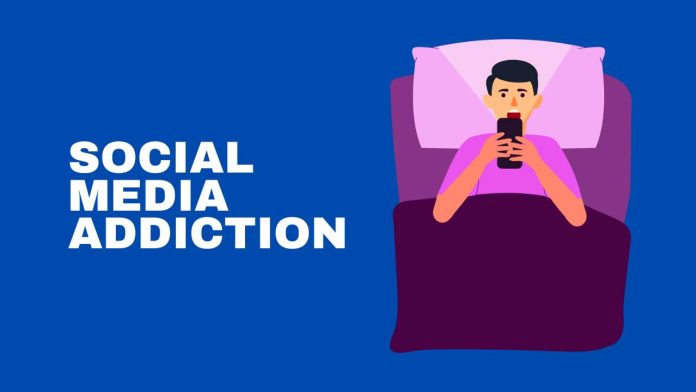In today’s digital age, it’s easy to get caught in the endless scroll of social media. Before you know it, what was supposed to be a quick check-in on your feed turns into hours lost in the online world. Social media addiction is a real thing, and it’s affecting more of us than we might want to admit. In this blog, we’ll chat about how social media can impact our mental health and relationships and offer some handy tips such as visiting an addiction rehab to help you manage your online engagement.
Table of Contents
What is Social Media Addiction?
Let’s start by understanding what social media addiction actually is. It’s a bit more than just spending a lot of time on your phone or computer. It’s when your use of social media starts to have a negative impact on your life, affecting things like your mental health, your relationships, and even your sleep. It’s the constant need to check your phone, the anxiety of missing out on something, and the feeling that you can’t live without it.
Recognising the Signs
Recognising the signs of social media addiction is the first step to overcoming it. It might be that you’re spending more time online than with real people, or you feel anxious or restless when you can’t check your social media. Other signs include neglecting other aspects of your life, like work, school, or family, and feeling the need to constantly post and get validation through likes and comments.
Impact on Mental Health
Social media can have a pretty big impact on your mental health. It can lead to feelings of inadequacy, anxiety, and depression. The constant comparison to the seemingly perfect lives of others can make you feel like you’re not good enough. It can also disrupt your sleep, which is super important for your overall well-being.
How it Affects Relationships
Our relationships can also take a hit due to social media addiction. You might find yourself more interested in scrolling through Instagram than having a conversation with the person right in front of you. It can create a sense of disconnection and make your loved ones feel like they’re playing second fiddle to your online world.
Setting Boundaries with Social Media
One of the best ways to overcome social media addiction is to set some boundaries. Allocate specific times for checking social media and stick to them. It’s about creating a balance between your online and offline life. You could try things like not checking social media first thing in the morning or during meals.
The Power of a Digital Detox
Every now and then, a digital detox can do wonders. It means taking a break from all social media for a set period – maybe a day, a weekend, or even a week. It can help you reset and realise that you can, in fact, live without constantly checking your phone.
Engaging in Real-Life Activities
Replacing some of your social media time with real-life activities is a great way to combat addiction. Take up a hobby, meet up with friends, or spend time in nature. It’s about finding joy in the real world and not just through a screen.
Mindful Social Media Use
Being more mindful about your social media use can also help. Ask yourself why you’re logging on. Is it out of habit or boredom, or are you actually looking to connect with someone? Being more conscious of your reasons for using social media can help you break the mindless scrolling habit.
Seek Professional Help if Needed
If social media addiction is seriously impacting your life, it might be worth seeking professional help. Therapists can help you understand the root of your addiction and develop strategies to manage it.
Practising Gratitude and Mindfulness
Practising gratitude and mindfulness can shift your focus from what’s happening online to what’s happening in your own life. Keeping a gratitude journal or doing daily mindfulness exercises can help you appreciate the here and now.
Limiting Notifications
Limiting notifications from your social media apps can reduce the urge to constantly check your phone. Most phones allow you to customise your notifications, so you only get alerted about the important stuff.
Social Media-Free Zones
Creating social media-free zones in your life can help, too. Make your bedroom a phone-free area, or decide that mealtimes are for chatting with family, not checking Facebook.
Finding Support
Finding support from friends or family can make a big difference. You might find that others are struggling with the same issue and you can support each other in cutting down your social media use.
Reconnecting with the Offline World
Reconnecting with the offline world is crucial. Rediscover the joy of face-to-face interactions, get involved in your community, or simply enjoy the peace that comes with being offline.
Understanding the Role of Social Media
It’s also important to understand the role social media plays in your life. For some, it’s a tool for work or staying in touch with distant relatives. Understanding this can help you use social media more intentionally and less compulsively.
The Benefits of Reducing Social Media Use
Reducing your social media use has loads of benefits. It can improve your mood, give you more time for other activities, and enhance your relationships. It can also help you sleep better and feel more connected to the world around you.
Conclusion
Dealing with social media addiction is about finding a balance. It’s about using social media as a tool to enhance your life, not detract from it. By setting boundaries, engaging in real-life activities, and being more mindful about your use, you can start to loosen the grip social media has on your life. Remember, life is happening all around you – not just on the screen in front of you.
















